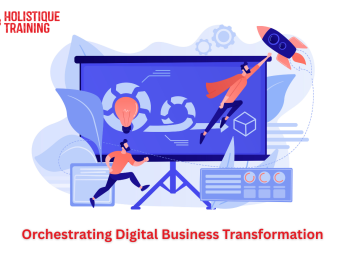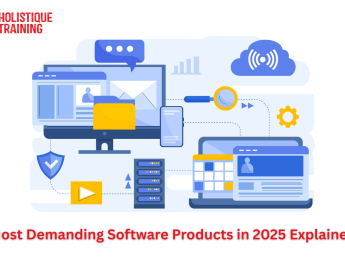- Table of Contents
- The Difference Between Basic and Practical Accounting Training
- Benefits of Practical Accounting Training
- Enhanced Problem-Solving Skills
- Industry Relevance
- Seamless Technology Integration
- Increased Employability
- Networking Opportunities
- Professional Confidence
- What Happens If You Do Not Join Practical Accounting Training?
- Skill Gap
- Reduced Competitiveness
- Slow Career Progression
- Limited Value to Employers
- Lack of Exposure to Industry Realities
- Risk of Ineffective Decision-Making
- Accounting Training Tips
- 1. Seek Accredited Programmes
- 2. Engage Actively in Learning
- 3. Embrace Technology
- 4. Seek Internships or Work Placements
- 5. Build a Professional Network
- 6. Stay Updated with Industry Trends
- 7. Cultivate a Continuous Learning Mindset
- Role of Technology in the Accounting Profession
- Automation and Efficiency
- Real-time Financial Reporting
- Data Analytics
- Cybersecurity Concerns
- Blockchain and Cryptocurrency
- Remote Work Capabilities
- Artificial Intelligence (AI) in Decision-Making
- Conclusion
Introduction
Accounting is the backbone of any successful business, providing vital financial information that guides decision-making and ensures the organisation's financial health. With the rapid evolution of technology and the increasing complexity of financial transactions, the demand for skilled and practically trained accountants is higher than ever before. In this blog post, we will delve into the advantages of practical accounting training, explore its distinction from basic accounting, understand the repercussions of not joining such training, offer valuable accounting training tips, and highlight the indispensable role of technology in the accounting profession.
The Difference Between Basic and Practical Accounting Training
Before we delve into the benefits of practical accounting training, let's differentiate it from basic accounting training. Basic accounting training typically covers fundamental concepts, principles, and theoretical knowledge, such as bookkeeping, debits and credits, and financial statement analysis. While these foundational skills are essential, practical accounting training takes it to the next level by focusing on real-world scenarios, industry best practices, and hands-on experience.
Practical accounting training encompasses the utilisation of advanced accounting software, financial analysis using real company data, understanding complex transactions, and implementing strategic decision-making based on financial reports. By bridging the gap between theory and application, practical accounting training equips aspiring accountants with the tools they need to excel in the modern business landscape.
Benefits of Practical Accounting Training
Enhanced Problem-Solving Skills
Practical accounting training stands as a crucible for refining problem-solving abilities. Trainees are immersed in real accounting dilemmas encountered in the corporate world. Individuals develop critical thinking and analytical skills by engaging with practical scenarios, enabling them to navigate and conquer complex financial challenges with confidence and proficiency. This capability to strategise and resolve real-world issues becomes a cornerstone for success in the demanding accounting field.
Industry Relevance
The practical approach of accounting training ensures that individuals are not merely equipped with theoretical knowledge but are also well-prepared for the challenges they will face in the workplace. Incorporating industry-specific case studies and simulations gives trainees valuable insights into various sectors. This exposure makes graduates more versatile, allowing them to stand out to potential employers who seek candidates with practical experience and a profound understanding of industry intricacies.
Seamless Technology Integration
In an era where technology is pivotal in the accounting landscape, practical accounting training becomes instrumental in familiarising individuals with cutting-edge accounting software and tools. This exposure ensures that trainees can adapt quickly to the digital revolution, stay abreast of technological advancements, and ultimately remain ahead of the competition. Seamlessly integrating technology into accounting practices enhances efficiency, accuracy, and overall effectiveness in handling financial processes.
Increased Employability
The immediate applicability of skills acquired through practical accounting training makes graduates highly sought after by employers. In a competitive job market, organisations are keen on recruiting candidates with a strong grasp of practical accounting knowledge and hands-on experience. By demonstrating immediate value to prospective employers through their practical skills, graduates of such training programs enhance their employability and position themselves favourably for competitive job positions.
Networking Opportunities
Practical accounting training programmes often go beyond the classroom, fostering networking events and industry collaborations. These opportunities create a platform for trainees to establish valuable connections with professionals in the field. Networking can lead to future internships, job offers, or partnerships. The relationships formed during these events become an essential asset, offering avenues for career growth and collaboration in the dynamic accounting world.
Professional Confidence
Working with real-world scenarios and mastering advanced accounting techniques significantly boosts trainees' confidence. Confidence is crucial in the accounting profession, where precision and accuracy are paramount. Practical accounting training imparts technical skills and instils the self-assurance needed to make sound decisions under pressure. This professional confidence becomes a key driver for success in a field where competence and assurance are highly valued.
In summary, the benefits of practical accounting training extend far beyond acquiring technical skills. It moulds individuals into well-rounded professionals ready to tackle the challenges of the contemporary business landscape. The enhanced problem-solving skills, industry relevance, seamless technology integration, increased employability, networking opportunities, and professional confidence collectively make practical accounting training an invaluable investment for aspiring accountants.
What Happens If You Do Not Join Practical Accounting Training?
Choosing not to participate in practical accounting training could result in several missed opportunities and challenges in your accounting career:
Skill Gap
The absence of practical experience creates a substantial skill gap between individuals who have undergone practical accounting training and those who haven't. This gap can be a significant impediment, making it challenging for individuals to meet employers' expectations and perform efficiently in the workplace. Practical accounting training imparts theoretical knowledge and hone hands-on skills, bridging the gap between academia and real-world application.
Reduced Competitiveness
In the contemporary job market, where employers prioritise candidates with hands-on experience and technological proficiency, individuals without practical accounting training may be disadvantaged. The lack of exposure to real-world scenarios and advanced accounting tools can reduce competitiveness when vying for coveted positions against candidates with the practical skills acquired through targeted training programs.
Slow Career Progression
Practical accounting training is designed to prepare individuals for higher-level responsibilities in the accounting profession. Without this preparation, career progression may be slower, limiting opportunities to ascend the corporate ladder. The intricate challenges of the accounting profession often require a nuanced understanding gained through practical experience. Those without such experience may find themselves plateauing in their careers and missing out on leadership roles.
Limited Value to Employers
Employers seek accountants who can contribute to the organisation's success from day one. By forgoing practical accounting training, individuals may not possess the immediate value businesses seek in a competitive market. Organisations often seek candidates who can seamlessly integrate into the workplace, understand industry nuances, and apply their skills to contribute meaningfully. Without practical training, individuals may take longer to become productive contributors to their employers' success.
Lack of Exposure to Industry Realities
Practical accounting training exposes individuals to the practicalities and challenges prevalent in the accounting industry. This exposure is crucial for understanding the dynamics of various sectors, compliance requirements, and industry-specific nuances. Without this exposure, individuals may find it challenging to adapt quickly to the intricacies of different businesses and industries, limiting their versatility and adaptability in the professional realm.
Risk of Ineffective Decision-Making
Practical accounting training equips individuals with technical skills and instils a problem-solving mindset essential for effective decision-making. Without this training, individuals may be unable to analyse complex financial scenarios and make strategic decisions based on real-world insights. Without practical experience, there is a heightened risk of making uninformed decisions that can affect an organisation's financial health.
In short, the decision to forego practical accounting training can have far-reaching implications on an individual's career trajectory. The consequences are multifaceted, from a noticeable skill gap and reduced competitiveness to slower career progression and limited value to employers. To thrive in the competitive landscape of the accounting profession, practical training is not just beneficial—it's a necessity. It ensures that individuals are well-prepared, adaptable, and ready to contribute meaningfully to the complex accounting world from the moment they step into the professional arena.
Accounting Training Tips
For those considering practical accounting training, the journey is not just about enrolling in a program; it's about maximising the learning experience to become a proficient and sought-after professional. Here are some valuable tips to make the most out of your accounting training:
1. Seek Accredited Programmes
When embarking on your accounting training journey, opt for programmes offered by reputable institutions that provide accredited accounting training. Accreditation ensures that the curriculum aligns with industry standards and covers relevant topics. This adds credibility to your training and ensures that you are equipped with the knowledge and skills demanded by the industry. Examples of reputable institutions include renowned organisations such as Harvard Extension School and the Association of Chartered Certified Accountants (ACCA).
2. Engage Actively in Learning
Accounting training is not a passive experience; it's an opportunity to engage with the material actively. Participate wholeheartedly in discussions, case studies, and practical exercises during the training. Active engagement reinforces learning, promotes a deeper understanding of concepts, and facilitates the application of theoretical knowledge to real-world scenarios. Ask questions, share insights, and collaborate with fellow trainees to enrich the learning experience.
3. Embrace Technology
As technology continues to revolutionise the accounting field, embrace software tools and applications that are integral to the profession. Familiarise yourself with accounting software and other technological advancements used in the industry. Leveraging technology enhances efficiency and proficiency, making you a valuable asset in a landscape where automation and digitalisation are increasingly prevalent.
4. Seek Internships or Work Placements
One of the most effective ways to solidify your theoretical knowledge is to gain hands-on experience through internships or work placements. Actively seek opportunities to work in accounting firms, corporate finance departments, or other relevant settings. Real-world experience complements your training, providing practical insights into the day-to-day challenges and intricacies of the profession. It also allows you to apply what you've learned professionally, reinforcing your understanding of accounting principles.
5. Build a Professional Network
Networking is a powerful tool for career growth in the accounting profession. Take advantage of networking opportunities provided by your training programme, attend industry events, and connect with professionals in the field. Building a strong professional network can lead to valuable connections, mentorship opportunities, and potential job offers. Actively engage with your peers, instructors, and industry professionals to create a robust network to support your career development.
6. Stay Updated with Industry Trends
The accounting landscape is constantly evolving, driven by changes in regulations, technology, and business practices. Stay informed about industry trends, updates in accounting standards, and emerging technologies. Subscribe to relevant publications, attend webinars, and participate in professional forums to stay abreast of the latest developments. This proactive approach enhances your knowledge and positions you as a forward-thinking professional in a rapidly changing industry.
7. Cultivate a Continuous Learning Mindset
Accounting is a dynamic field, and continuous learning is essential for staying relevant. Cultivate a mindset that values ongoing education and professional development. Consider pursuing advanced certifications, attending workshops, or enrolling in additional courses to deepen your expertise. A commitment to lifelong learning enhances your skill set and demonstrates to employers that you are dedicated to staying at the forefront of your profession.
In summary, practical accounting training is not just about completing a program; it's about actively shaping your learning experience to prepare for a successful career. By seeking accredited programs, engaging actively in learning, embracing technology, gaining practical experience, building a professional network, staying updated with industry trends, and cultivating a continuous learning mindset, you set yourself on a path to not only excel in your training but also thrive as a competent and adaptable accounting professional in the dynamic world of finance.
Aspect to Consider | Description | Example |
Accreditation | Recognised industry accreditation enhances programme. | ACCA, CPA |
Curriculum Alignment | Ensure curriculum aligns with industry standards. | IMA endorsed syllabus |
Practical Application | Emphasis on real-world scenarios for application. | Industry case studies, simulations |
Industry Collaboration | Opportunities for networking and industry connections. | Networking events, partnerships |
Technology Integration | Training includes cutting-edge accounting software. | Hands-on experience with QuickBooks |
Table 1: What to look for in a training company
Role of Technology in the Accounting Profession
The accounting profession has undergone a remarkable transformation due to advancements in technology. The integration of technology has profoundly impacted the way accountants operate and the services they offer:
Automation and Efficiency
One of the most prominent impacts of technology in accounting is the automation of routine and time-consuming tasks. Accounting software like QuickBooks and Xero streamlines processes like data entry, bank reconciliations, and invoice processing. Automation reduces the risk of human error and significantly enhances efficiency. Accountants can redirect their focus from mundane, repetitive tasks to strategic activities requiring critical thinking and analysis.
Real-time Financial Reporting
Cloud-based accounting software has revolutionised the way financial data is managed and reported. With real-time access to financial information from anywhere with an internet connection, accountants can provide up-to-the-minute financial insights. This facilitates prompt decision-making and agile financial management. Businesses can now make informed choices based on the most current financial data, leading to more proactive and strategic decision-making processes.
Data Analytics
Technology has empowered accountants with the ability to analyse vast datasets quickly and efficiently. Data analytics tools allow accountants to extract valuable insights into business performance, identify trends, and detect anomalies that may impact financial health. For example, tools like Tableau and Microsoft Power BI enable accountants to create visualisations that make complex data more understandable, aiding in strategic planning and forecasting.
Cybersecurity Concerns
With the increasing reliance on technology comes the critical issue of cybersecurity. Accountants deal with sensitive financial information, making data protection paramount. The profession now faces the challenge of safeguarding financial data from cyber threats. Accounting firms must invest in robust cybersecurity measures to ensure the confidentiality and integrity of financial information. This includes implementing secure communication channels, regular system audits, and employee training on cybersecurity best practices.
Blockchain and Cryptocurrency
As cryptocurrencies gain popularity, the accounting profession must adapt to the implications of blockchain technology. Blockchain, the underlying technology for cryptocurrencies, offers secure, transparent, and tamper-resistant record-keeping. Accountants need to understand how blockchain impacts financial transactions, ensuring accurate and reliable reporting in the context of digital currencies. This evolving aspect of technology introduces a new dimension to accounting practices, demanding continuous learning and adaptation.
Remote Work Capabilities
Advancements in technology have facilitated accountants' ability to work remotely. Cloud-based accounting software, virtual collaboration tools, and secure communication platforms enable professionals to collaborate seamlessly regardless of geographical distances. This has become especially pertinent recently, emphasising the importance of technological infrastructure that supports remote work arrangements, ensuring business continuity and client service delivery.
Artificial Intelligence (AI) in Decision-Making
Integrating artificial intelligence (AI) in accounting software has introduced a new era of intelligent decision-making. AI algorithms can analyse financial data, detect patterns, and generate predictive insights. This assists accountants in making informed decisions, identifying opportunities, and mitigating risks. The application of AI enhances the accuracy and efficiency of financial analysis, augmenting accountants' capabilities in providing strategic guidance to organisations.
In summary, the role of technology in the accounting profession is dynamic and multifaceted. From automation and efficiency gains to real-time reporting, data analytics, and addressing cybersecurity concerns, technology has become integral to the daily operations of accountants. As the profession continues to evolve, accountants must stay abreast of technological advancements, embrace continuous learning, and adapt their skill sets to leverage the full potential of technology in providing high-quality financial services in the digital age.
Conclusion
In conclusion, practical accounting training is a valuable investment in the future of any aspiring accountant. By bridging the gap between theoretical knowledge and real-world application, practical training enhances problem-solving skills, industry relevance, and technology integration. It increases employability, boosts professional confidence, and opens doors to networking opportunities. On the other hand, the absence of such training could result in skill gaps, reduced competitiveness, and slower career progression.
To thrive in the rapidly evolving accounting profession, aspiring accountants must actively seek accredited training programmes, engage wholeheartedly in the learning process, and embrace technology as an indispensable tool. By doing so, they will be well-prepared to leverage the power of technology, embrace automation, and navigate the digital landscape, ensuring their success as skilled and competent accountants in the digital age.
That said, if you're looking for practical accounting courses, our institution offers an exceptional approach that combines real-life examples, practical exercises, case studies, and theoretical knowledge to ensure a comprehensive learning experience. By choosing our training programmes, you will be well-prepared to thrive in the rapidly evolving accounting profession and equipped with the necessary skills to excel in the digital age. So, make sure to get in touch with us now and get started!






















